My fifth-great-grandfather Noah Marsh (1755-1830) was a Revolutionary War soldier and the father of 13 children. I didn’t know much about Noah aside from his military service, so I decided to research him using GenealogyBank.

One of the first records that pulled up after searching for just Noah’s first and last name was his obituary.

I knew that he was a Revolutionary War veteran, but I wanted to know more about his service, so I kept looking through the search results. Under the Government Publications section on GenealogyBank I found something interesting: a rejected 1838 pension application by Noah’s widow, Hannah (1754-1844).
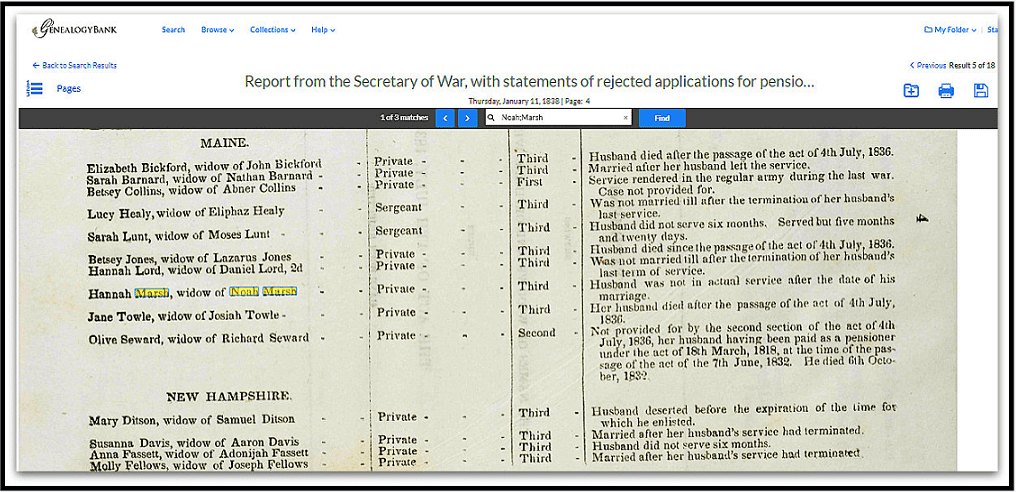
This is terrific.
What a find!
Notice the reason listed for rejecting her application: “Husband was not in actual service after the date of his marriage.” A good clue that this was his second wife.
GenealogyBank show that he received a pension in 1818.
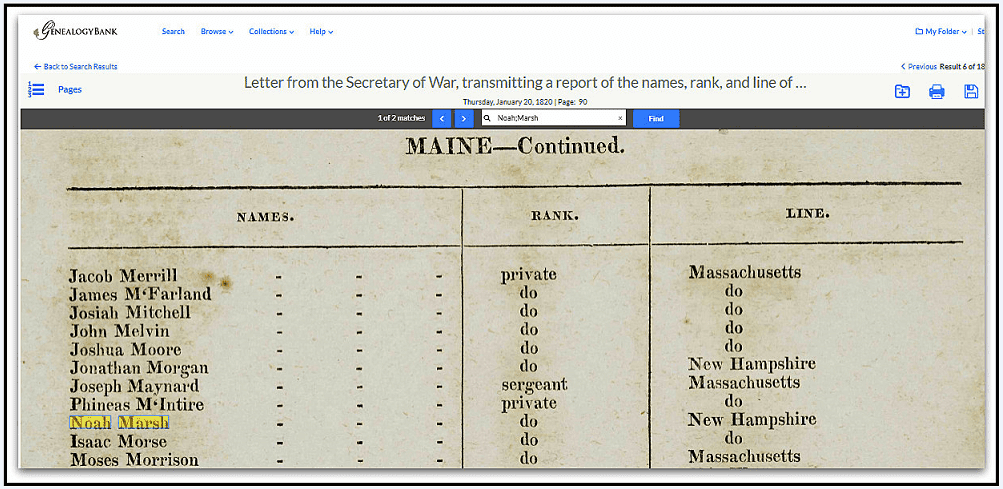
Next, I googled “Noah Marsh Revolutionary War” and found his name listed at the bottom of the second column on a New Hampshire Muster Roll that I found online using Google Books.
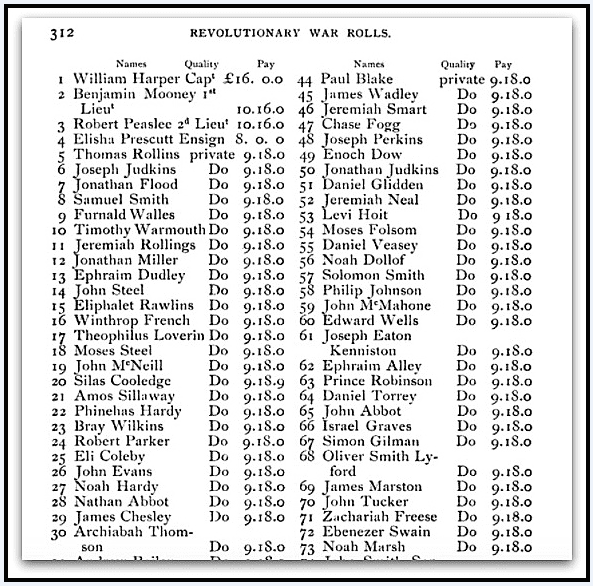
From another Google Books result I learned that Noah served in the 2nd New Hampshire Regiment in 1777 and that he was wounded in action.
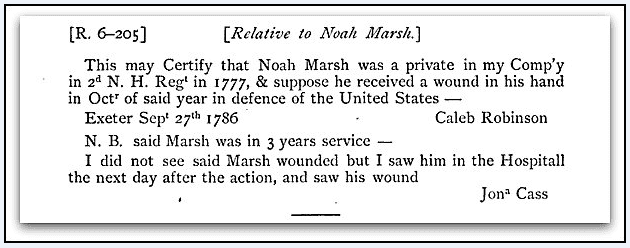
In addition, I learned that his unit, the 2nd New Hampshire Regiment, had spent the brutal winter of 1777-1778 in Valley Forge and his name is on the Valley Forge Muster Roll of that unit at Valley Forge, provided by ValleyForgeMusterRoll.org. Interestingly there is the notation “sick at Albany.” So, I don’t know if he remained hospitalized in Albany, New York, during this period or if he actually spent the winter in Valley Forge with his unit.

According to this website, Poor’s Brigade entered Valley Forge in December 1777 and left July 1778 as a part of Lee’s Division.
A Wikipedia article on Valley Forge says the following about that winter:
“Valley Forge was the military camp 18 miles (29 km) northwest of Philadelphia where the American Continental Army spent the winter of 1777–78 during the American Revolutionary War. Starvation, disease, malnutrition, and exposure killed more than 2,500 American soldiers by the end of February 1778.”
Amazingly, Noah survived that winter and lived another 52 years.
According to my FamilySearch notes, Noah died in Cornville, Somerset County, Maine, in October 1830 and was buried in the West Ridge Cemetery in Cornville. Here is a photo of his gravestone from Find a Grave. See: https://www.findagrave.com/memorial/120825731#view-photo=93302364.
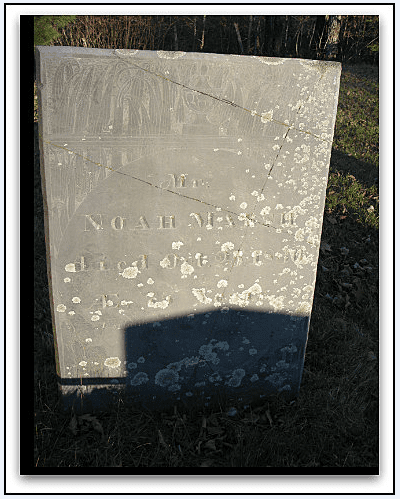
Thank you GenealogyBank – I learned a lot about my ancestor Noah Marsh.
Genealogy Tip: Use GenealogyBank and free sources online to find historical records that can help you learn more about your ancestor’s military service in the Revolutionary War.
Related Articles:

My great great grandfather was Noah Marsh. My grandmother was a Marsh. Noah Manson Marsh was his son. Marsh & Learneds were Mainers. Moved to Oregon & my grandmother, born 1880, was born in the Portland area. Hope Grace Marsh Learned. Sincerely, Constance Elizabeth Baker Bush.